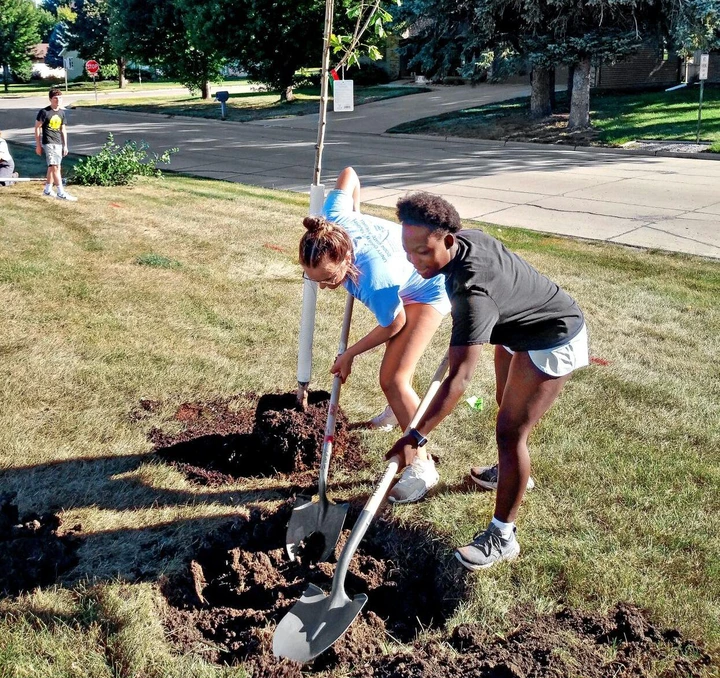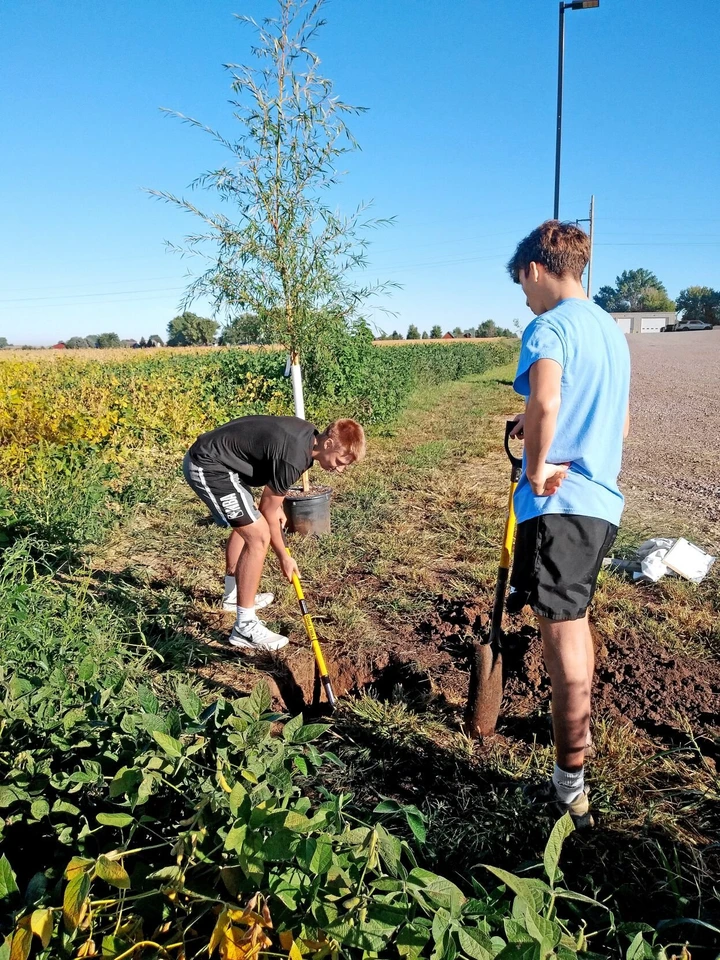The Unity Earth Science course has launched the Genesis Arboretum.

View pictures in App save up to 80% data.
ORANGE CITY—This fall, Unity Christian High School welcomed 26 new trees to its campus, thanks to the efforts of Kevin Haan’s earth science class, who successfully achieved their dream of creating the Genesis Arboretum.
The foundation of the project was established last year.
"Haan mentioned that in last year's earth science class, the primary focus was on obtaining permission to initiate a tree planting project, aiming ultimately to establish an arboretum. The students dedicated their efforts to all the preparatory work necessary for this initiative."
During the 2023-24 academic year, students in Haan's earth science class explored the numerous advantages of trees, identified suitable planting sites, and showcased the ways in which an arboretum could foster interdisciplinary learning experiences. They compiled their findings into a formal proposal and delivered a 30-minute presentation to Unity Christian's superintendent, director of learning, and head groundskeeper, effectively making their case.
“To make a long story short, they agreed and now offer landscaping services along with a wide selection of plants, shrubs, and trees.”
As the arboretum initiative started to take shape, it was evident that a name was necessary. Students proposed various options and held a vote to decide. Ultimately, they chose the name Genesis Arboretum, referencing the opening book of the Bible, which describes how “The Lord God made all kinds of trees grow out of the ground — trees that were pleasing to the eye and good for food.”
Haan mentioned that the name also embodies his school’s dedication to stewardship and responsible caretaking.
"We serve as guardians and caretakers of creation. Our goal is to convey two important ideas to the students: firstly, that this is indeed rooted in science and biology; and secondly, as Christians, we have a responsibility to nurture and protect the environment."
Trees play a vital role in an ecosystem, offering shade, serving as habitats for various birds and wildlife, minimizing soil erosion, and enhancing air quality.
As the development of Genesis Arboretum progressed, an important task was to choose the tree species that would thrive on the grounds of Unity Christian.
“Haan mentioned, ‘The Iowa DNR provided us with a list of native trees suitable for Iowa, as the main goal of this grant is to promote diversity among native species. We aimed to include a wide variety of species, and we managed to acquire nearly one of each type available.’”

View pictures in App save up to 80% data.
The area around the school building features a diverse selection of new trees, including three types of oak, a Kentucky coffee tree, two varieties of honey locust, a birch, and a spruce. Arboreta are classified into four accreditation levels, and Genesis Arboretum holds a Level 1 status. To achieve this level, an arboretum must contain a minimum of 25 species of woody plants, whether they be trees or shrubs, and be located in a site that is accessible to the public.
This year, Senior Ava Postma is enrolled in Haan’s earth science class, and her family runs Arden Tree Farms located in Washington state. For the project, Ground Effects obtained some of the trees from her family's business.
Postma shared, “My great-great-grandfather was one of the original founders, and this tree farm has been a cherished family-owned business for four generations. I aspire to uphold that legacy and hope to play a role in its future. It's incredible to witness how everything is intertwined.”
Haan emphasized species diversity while choosing the trees, partly to fulfill the requirements for achieving Level 1 arboretum status. Nevertheless, his decision was influenced by additional considerations as well.
"We aim to avoid the situation we're currently facing with the emerald ash borer," stated Haan.
The emerald ash borer is a harmful invasive insect that targets ash trees and has been found in all 99 counties of Iowa. Increasing species diversity within arboretums enhances their ability to withstand diseases or pests that can gradually eliminate a specific type of tree. Take the American chestnut, for instance; it was once a prominent tree species in the eastern United States until a foreign chestnut blight fungus started to proliferate in the early 1900s.